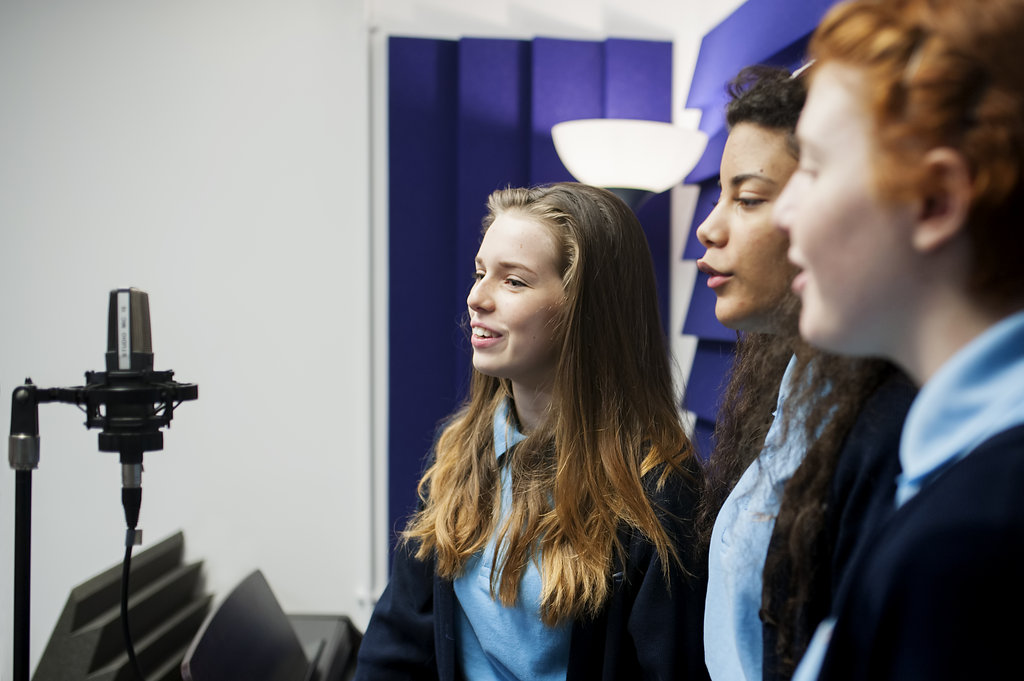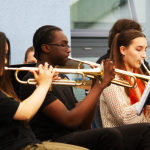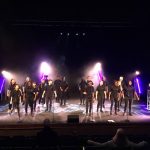Music development plan summary
Jo Richardson Community School
Overview
| Detail | Information |
| Academic year that this summary covers | 2024/25 |
| Date this summary was published | September 2024 |
| Date this summary will be reviewed | September 2025 |
| Name of the school music lead | Mr Jordan Matthews |
| Name of school leadership team member with responsibility for music (if different) | Mrs Charlotte Boulton |
| Name of local music hub | Barking and Dagenham |
| Name of other music education organisation(s) (if partnership in place) |
This is a summary of how Jo Richardson Community school delivers music education to all our pupils across three areas – curriculum music, co-curricular provision and musical experiences – and what changes we are planning in future years. This information is to help pupils and parents or carers understand what our school offers and who we work with to support our pupils’ music education.
Part A: Curriculum music
This is about what we teach in lesson time, how much time is spent teaching music and any music qualifications or awards that pupils can achieve.
|
Jo Richardson community offers a wide-ranging linear music curriculum that aims to encourage student love of music, engage them within the music curriculum and accelerate progress over time for all students. JRCS curriculum map can be found here. At Ks3 the all students receive one hour of lesson time per week. Here they study a wide variety of instrumental skills, techniques and musical styles and features. Our curriculum is differentiated so that all regardless of background or SEND status are able to access the concepts and make clear and profound progress. Further information about the schools SEN support plan can be found here: The Ks3 curriculum in a linear process with each unit building (and requiring) the skills, knowledge or language learnt in previous units. Year 7 focus heavily on the use of voice along with rhythm and pitch notation studied across various mediums along with an introduction to music technology. Year 8 takes the skills learnt and develops them further through musical analysis (listening skills) and a large composition and performance focus. Year 9 advances the listening skills gained so far whilst developing performance techniques, reading abilities and vocal work. Some of these areas are advised from the MMC some are driven by the needs of the students The school offers Graded instrumental exams throughout Peri teachers with multiple boards including but not exclusively: Rock School, Trinity and Guildhall At Ks4 we currently offer GCSE through OCR |
Part B: Co-curricular music
This is about opportunities for pupils to sing and play music, outside of lesson time, including choirs, ensembles and bands, and how pupils can make progress in music beyond the core curriculum.
|
The school is proud of its extracurricular offering, promoting a wide variety of musical opportunities for the students both in and outside of the school day. Jo Richardson offers *free* 1-1 and small group instrumental tuition available to all students. There is a variety of instruments that students choose to study inc: Piano, Bass, Guitars, Vocals, Strings, Woodwind and Brass. These lessons are either 20 or 30minutes long and operate during the school day on a rotating timetable to ensure students reduce missed lesson time outside of music. The school offers Graded instrumental exams throughout Peri teachers with multiple boards including but not exclusively: Rock School, Trinity and Guildhall There are multiple school ensembles and music extra-curricular clubs. The school offers free peripatetic instrumental lessons for students along with the school *Orchestra, *Wind band, Vocal group, Jazz Band, Ks4 bands and Music technology clubs & Keyboard clubs. These are run weekly and are free for all students to attend. (clubs marked * require a playing standard to attend) There are three annual performances opportunities – the winter and summer music nights and easter showcase along with several smaller events run throughout the year. The school musical runs every two years. Instrumental hire is available from the local music service facilitated by the school to help students rehearse at home. With set rehearsal times in the practice rooms before school at break/lunch and after school to ensure students are able to practice throughout the week to help maintain and increase progress. |
Part C: Musical experiences/Events
This is about all the other musical events and opportunities that we organise, such as singing in assembly, concerts and shows, and trips to professional concerts.
|
Jo Richardson currently offers multiple musical performance opportunities throughout the school year. There are two annual large performance concerts featuring the schools’ extra-curricular ensembles, club & group members. Here they have the opportunity to perform to parents, peers and invited members of the local community. These concerts are varied featuring an array of orchestral, jazz and rock/pop style pieces by students from all key stages. There is also one smaller showcase style performance planned for the Easter term where students get the opportunities to perform on a much smaller scale. These performers tend to be relatively new to their instruments and this is the perfect opportunity for them to further develop their performance abilities and experience. We try to encourage musical performances throughout the year including year group/key stage assemblies where appropriate. This provides the perfect celebrate the musical attributes of students with their peers. Jo Richardson runs 2 dedicated achieve days in Year9 to musical learning and experiences. Students engage with a variety of musical activities and workshops provided by both internal and external providers across a multitude of areas inc; beatboxing, rock band, Samba/African drumming, vocal workshops and more. All of these performances and experiences are completely free of charge and open to all school students. |
In the future
This is about what the school is planning for subsequent years.
|
Jo Richardson school and music department are constantly looking for ways to develop and further our offering for our students. The curriculum is always being reviewed and developed to meet the needs of the students and wider local/national musical context. Further Co-Curricular provision currently being investigated including; 1) Year 7 form trips to St Martins in the fields Lunch time concerts. 2) Introduction of further extra-curricular activities inc; production and studio club and keyboard ensemble. 3) The creation of a school album as a by-product of the ensembles and music clubs. |





